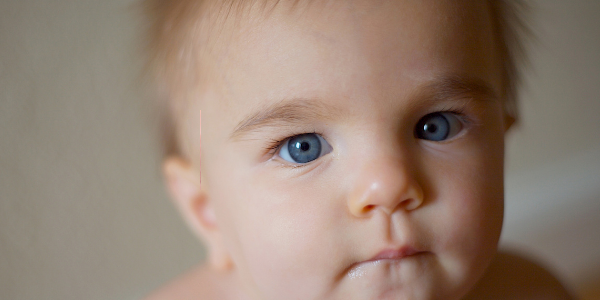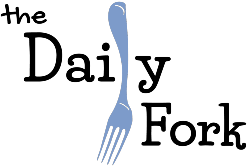When Can Babies Eat Eggs?
Eggs are a very tasty source of protein, and also contain many vitamins and essential minerals. They are easy to cook, nice and soft to eat, and gentle on your tummy. This makes them seem like the ideal food to give to babies and young children.
However, eggs are also a common allergen for young children. This can make some parents hesitant about introducing eggs into their children’s diet. Eggs count as a solid food, so you should not give your baby eggs until they are between 4 and 6 months old.
The age that you introduce solid food to your baby will depend on their development and what their appetite is like. If you are unsure, consult a doctor or pediatrician.
It is recommended that you start weaning your baby on foods like fruit, vegetables, and baby cereals, as they are less allergenic. Once they have got used to eating these things, you can move on to other foods like eggs.
Keep a close eye on them for several hours after they have tried eggs for the first time so you can check for any allergic reactions.
It is very important to give your baby eggs that are certified as safe from a trusted source, or there is a risk that they could contain salmonella.

How To Prepare Eggs For Your Baby
There are lots of ways that you can prepare eggs for your baby. Avoid frying the eggs, as this is fattening and makes the eggs more solid and harder to chew. Stick to soft preparations. Scrambled eggs are ideal, or boiled eggs that have been mashed up.
You should cook the yolk thoroughly when first introducing eggs into your baby’s diet, as they can contain bacteria when they are runny.
If your baby has no adverse reaction to the eggs and you are satisfied that they are from a trusted source, then you can start to give your baby runny yolks. This means that you can give them soft-boiled eggs or poached eggs.
To make simple scrambled eggs, crack the eggs into a jug or bowl and beat them with a fork or a whisk. Pour them into a frying pan or saucepan over medium to low heat. You do not need oil or butter in the pan, but it will work best if the pan is non-stick.
Slowly stir the eggs to keep them moving over the gentle heat. They will start to cook and will turn from liquid to a soft, fluffy texture. When all the liquid is gone, the eggs are cooked. Make sure you let them cool down a bit before you feed them to your baby, or they could burn their mouth.
When you first make scrambled eggs for your baby, avoid adding additional ingredients. Once you have established that your child is not allergic to eggs and enjoy eating them, you can start to embellish them with more flavor.
You could season the eggs with salt and pepper, add butter for a richer flavor, or milk to make the eggs go further. You can also add a bit of grated cheese for a nice taste, or chopped-up vegetables or ham.
Make sure that any additional ingredients are chopped up small enough that your baby won’t choke on them.
Egg Recipe Ideas For Baby And Toddlers
When you make eggs for your children, it is important to take into account how old they are. When you are first weaning your baby, soft scrambled eggs will work best as you can easily spoon it into their mouth without them choking. You can then move onto boiled eggs that have been mashed up.
Once your child starts to use their hands to feed themselves, you can give them hard-boiled eggs sliced into quarters. They will be able to hold this in their hand. If the slices are too slippery, coat them in a bit of baby cereal.
You can also try eggs baked in muffin trays as a handy snack, with extra ingredients like ham and cheese. For a larger meal, you could make an omelet or a frittata, and pack it with nutritious vegetables.
As your child progresses from grabbing food and chewing/sucking on it, you can start to give them food chopped into smaller pieces. This helps them to learn how to pick things up between their fingers and thumbs.
Try boiled eggs chopped into bite-size cubes. You can also make soft-boiled eggs with rectangles of toast that they can dip into the runny yolk.
When it’s time to teach your child how to use cutlery, you can continue with chunks that they can stab and eat off the fork. But, you can also go back to soft food like scrambled eggs so they can learn to scoop up food with a spoon.
To introduce new textures with the eggs, you can put smashed eggs on a cracker, or wrap up a tortilla with scrambled eggs and cheese.

Can Babies Be Allergic To Eggs?
It is not uncommon for children to develop an allergy to eggs. Just as dairy allergies are caused by an allergy to lactose protein, egg allergies are caused by an allergy to egg protein. This is found mostly in the white of the egg but is also present in the yolk in smaller amounts.
It is rare for someone to develop an egg allergy over the age of 5. An egg allergy is most likely to be present from birth, so will be noticed when you first introduce egg into your child’s diet. It is thought that children who are given eggs between the ages of 4 and 9 months are less likely to develop an egg allergy.
Children can often grow out of allergies, so it can be worth trying them with certain foods again after the age of 5 to see if they are still intolerant. This needs to be done safely, in small amounts, and with the advice of your doctor or pediatrician.
We always want to be transparent and honest about our article content. From time to time, we may link to products and services that compensate us for the referral. This does not affect your cost, but it does help us fund future content for this site.
